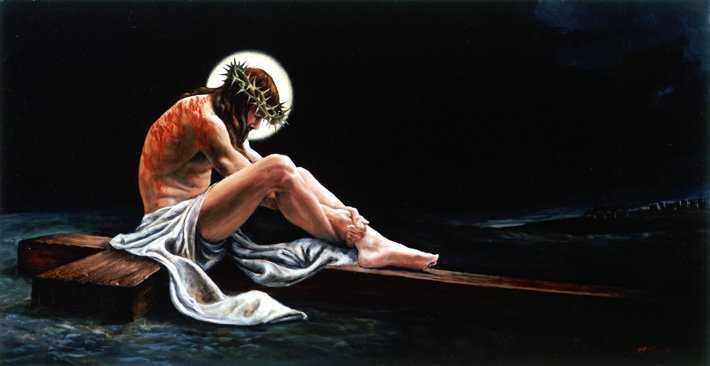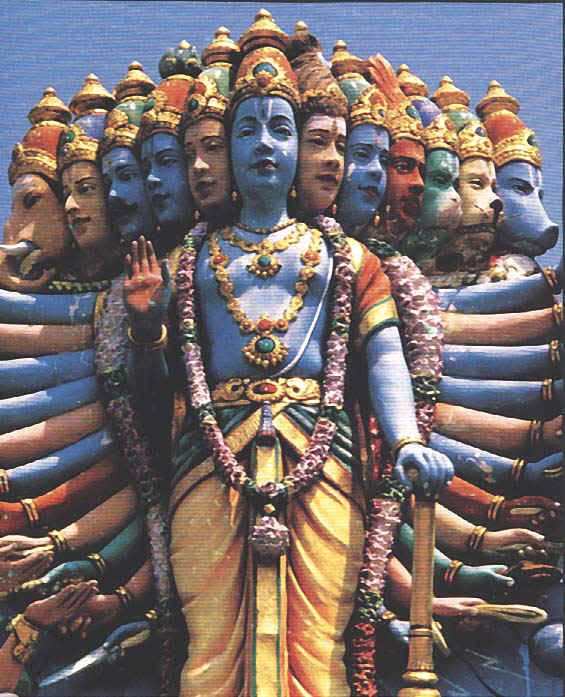 "Catholic": of or including all Christians • of or relating to the historic doctrine and practice of the Western Church.
"Catholic": of or including all Christians • of or relating to the historic doctrine and practice of the Western Church.
The Observation of this Ecclesial Anthropologist has been that Natives who follow the Crucified shy away from the Crucifixion; impetus unknown.
The angel said to the women, "Do not be afraid, for I know that you are looking for Jesus, who was crucified." (Matthew 28:5)There are two trends in the modern Christian comfort with wearing and displaying that horrible Roman instrument of torture: A)
the Protestant cross, which is bare (with the exception of those which are bedecked with flora and fauna or Ralph Lauren plaid or colorful ethnic design- I have a few of these on my own wall, I admit, and a gold one hanging around my neck) and B)
the Other Kind, which has the shameful image of a half-naked, dying young Jew on it.Most intriguing is the highly divergent behavior of Christians regarding the Cross.Protestants seem loathe to tolerate the image of the Crucified One on theirs; I have seen them roll their eyes at it, hide it, sheild their children from it. The explanation I have heard for such behavior is the proper observation that expected "But Jesus is not on the Cross! He is risen! The Cross is empty." And this is very true. Now, true Catholics believe the same thing, but
their behavior is different towards the Man on the Cross. As He hangs prominently in view
in their churches and on their rosaries, they fix their eyes on the crucifix, kneel before it, make their children do the same, bend low to kiss the image when they have the opportunity, even make its shape on their bodies. Their explanation goes that this is an image of their Lord, and their response is worship.Interesting...
Three observations off the top of my head-
1) Matthew 27 and Mark 15 both portray Jesus' mockers as demanding His descent from the Cross to prove Himself; "Let him come down now from the cross, and we will believe in him!" As we believe, Jesus did not "come down" from the Cross. He died on it, and thus achieved our salvation. The crucifixion becomes an inextricable part of His story, and ours.
2) Muslim aesthetics would sympathize with the Protestant tendancy; hanging on a Cross is just not what a Prophet of God does. Christians like Soren Kierkegaard, (who was Protestant) on the other hand, urge to the contrary- hanging on a cross is the unique prerogative of our God.
3) The Risen One is ever the One who was Crucified. But in all fairness, the early Christians, many of whom risked crucifixion themselves for their faith, did not like to portray the Crucifix either. Too close to home. Thus you find Jesus portrayed as the Good Shepherd, or as a kind of Apollo figure in the Catacombs. Understandable. But surely not the case for your average WASP.So what's the problem???...
And furthermore.
This does bring us around to that crux, if I may, that so often prevents catholicity... Mary, the mother of Jesus of Nazareth, who is God, thus Mary, the Mother of God. Get your Christology straight, people. The bleeding flesh on the Cross is Her flesh, her DNA, assumed by God incarnate so that we might be healed. Anything of ours that He does not take to Calvary cannot go to meet Him in Heaven. The mortal flesh and blood of Adam had to adhere to His divinity somehow, in order to rescue us from death and destruction. And thus it happened in the Virgin's Womb... very God and very man, inseperable, for our redemption.
As one of our favorite preachers has said it: The Light of Life was carried by her, nourished by her… His own blood, His own divine life, was mingled with hers (John 6.51) in a way unknown to anyone before or since Mary. And even more: Mary was united to Christ as only a mother can be united to her son. She was united to him by the intensity of a mother’s love. When the Magi came to adore the newborn King, Mary saw them adoring her Son, her own baby. And when Jesus hung from the cross, there was one onlooker who saw hanging there something more than a victim of Roman justice, more than a Rabbi, more even than a friend or a master: there was one in the crowd, and only one, who looked at the man on the cross and saw her only Son broken and dying, her own little baby struggling for air. Why do salvation and redemption apply to Mary in a special way? Because she plumbed the depths of the suffering and death of Jesus as only a mother could.
Adulation of Mary from more Protestant Divines:
Martin Luther: "In this work whereby she was made the Mother of God, so many and such great good things were given her that no one can grasp them. ... Not only was Mary the mother of him who is born [in Bethlehem], but of him who, before the world, was eternally born of the Father, from a Mother in time and at the same time man and God." (Weimer's The Works of Luther, English translation by Pelikan, Concordia, St. Louis, v. 7, p. 572.)"It is a sweet and pious belief that the infusion of Mary's soul was effected without original sin; so that in the very infusion of her soul she was also purified from original sin and adorned with God's gifts, receiving a pure soul infused by God; thus from the first moment she began to live she was free from all sin."(Sermon: "On the Day of the Conception of the Mother of God," December [?] 1527; from Hartmann Grisar, S.J., Luther, authorised translation from the German by E.M. Lamond; edited by Luigi Cappadelta, London: Kegan Paul, Trench, Trubner, first edition, 1915, Vol. IV [of 6], p. 238; taken from the German Werke, Erlangen, 1826-1868, edited by J.G. Plochmann and J.A. Irmischer, 2nd ed. edited by L. Enders, Frankfurt, 1862 ff., 67 volumes; citation from 152, p. 58)"She is full of grace, proclaimed to be entirely without sin- something exceedingly great. For God's grace fills her with everything good and makes her devoid of all evil...The veneration of Mary is inscribed in the very depths of the human heart." (Personal "Little" Prayer Book, 1522)"It is the consolation and the superabundant goodness of God, that man is able to exult in such a treasure. Mary is his true Mother, Christ is his brother, God is his father."(Sermon, Christmas, 1522)..."Mary is the Mother of Jesus and the Mother of all of us even though it was Christ alone who reposed on her knees . . . If he is ours, we ought to be in his situation; there where he is, we ought also to be and all that he has ought to be ours, and his mother is also our mother." (Sermon, Christmas, 1529)
John Calvin: "It cannot be denied that God in choosing and destining Mary to be the Mother of his Son, granted her the highest honor. ... Elizabeth called Mary Mother of the Lord, because the unity of the person in the two natures of Christ was such that she could have said that the mortal man engendered in the womb of Mary as at the same time the eternal God." (Calvini Opera, Corpus Reformatorum, Braunschweig-Berlin, 1863-1900, v. 45, p. 348, 35.)
Huldreich Zwingli: "It is right and profitable to repeat the angelic greeting - not prayer - 'Hail Mary' . . . God esteemed Mary above all creatures, including the saints and angels - it was her purity, innocence and invincible faith that mankind must follow."
Heinrich Bullinger: 'The Virgin Mary . . . completely sanctified by the grace and blood of her only Son and abundantly endowed by the gift of the Holy Spirit and preferred to all . . . now lives happily with Christ in heaven and is called and remains ever-Virgin and Mother of God."
More of the Vocatum Apologia on the Immaculata here.





























